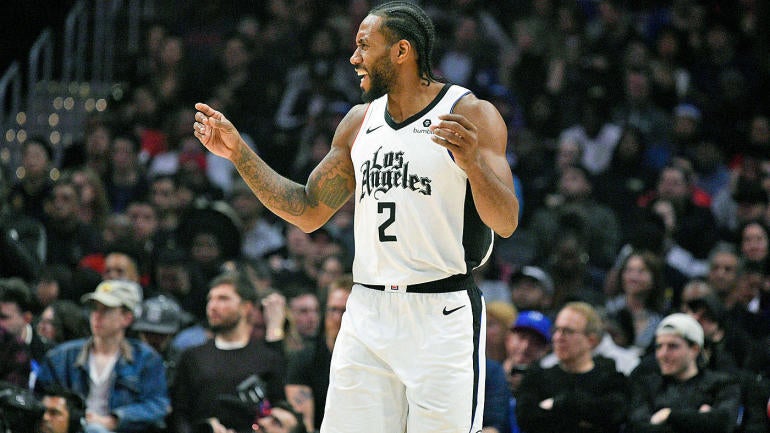
Kawhi Leonard's free agency was one of the wildest in recent memory. While his camp stayed quiet, rumors suggested that the Los Angeles Lakers had emerged as the heavy favorites. A return flight to Toronto to meet with the Raptors suggested that his old team had found its way back into the mix. But after almost a week without hearing a peep, Leonard signed with the Los Angeles Clippers, bringing Paul George with him in one of the most stunning coups in NBA history. Now, it seems, some of the parties involved aren't happy with how Leonard's free agency was conducted.
Their complaints boil down to one man: Dennis Robertson. Leonard's uncle, Robertson has long served as one of his closest advisors. The NBA, however, conducted a formal investigation into his conduct on Leonard's behalf after he signed with the Clippers, Sam Amick of The Athletic reports. He was not found to have committed any violations, but the league is reportedly ready to reopen the investigation if new information comes to light.
The NBA has strict rules on what teams are allowed to give players, and what would circumvent the salary cap. In short, financial benefits exceeding the value of a contract are illegal. Robertson, however, reportedly "asked team officials for part ownership of the team, a private plane that would be available at all times, a house and — last but certainly not least — a guaranteed amount of off-court endorsement money that they could expect if Leonard played for their team."
These requests were repeatedly denied by the Lakers, according to Amick, which reportedly prompted Robertson to ask about the ownership stake given to Magic Johnson in 1991 after he was forced to retire due to his HIV diagnosis. That agreement was permissible by league rules. Granting Leonard a piece of the team would not be.
While the NBA did not find any violations on Robertson's part, the situation has prompted the NBA to take a more proactive approach in reminding teams and the player's union of the rules governing free agency negotiations. In short, teams are supposed to communicate only with the player's official agent—who, in Leonard's case, is Mitch Frankel—rather than family members or other uncertified representatives of the player. It should be noted that Frankel represents no other active NBA players.
As little impact as tampering investigations have made in recent years, the NBA has proven willing to act decisively in matters of cap circumvention when enough evidence is found. The league famously stripped the Minnesota Timberwolves of four first-round picks due to an illegal agreement with free-agent forward Joe Smith in 2000. Just this summer, the Houston Rockets signed Nene to a contract that was deemed to circumvent the cap by inflating its salary number for trade purposes. The NBA and NBPA jointly agreed that his inflated contract number could not be traded. This ultimately backfired on the Rockets, as the contract included bonuses that made Nene virtually unplayable. If he appears in at least 10 games this season, the Rockets would likely have to pay the luxury tax.
Robertson was not found to have attempted to circumvent the cap, but these mere rumors have the NBA on alert. Cap circumvention is essentially a form of cheating, and it is not something the league will allow if it ever finds proof of its existence.


















